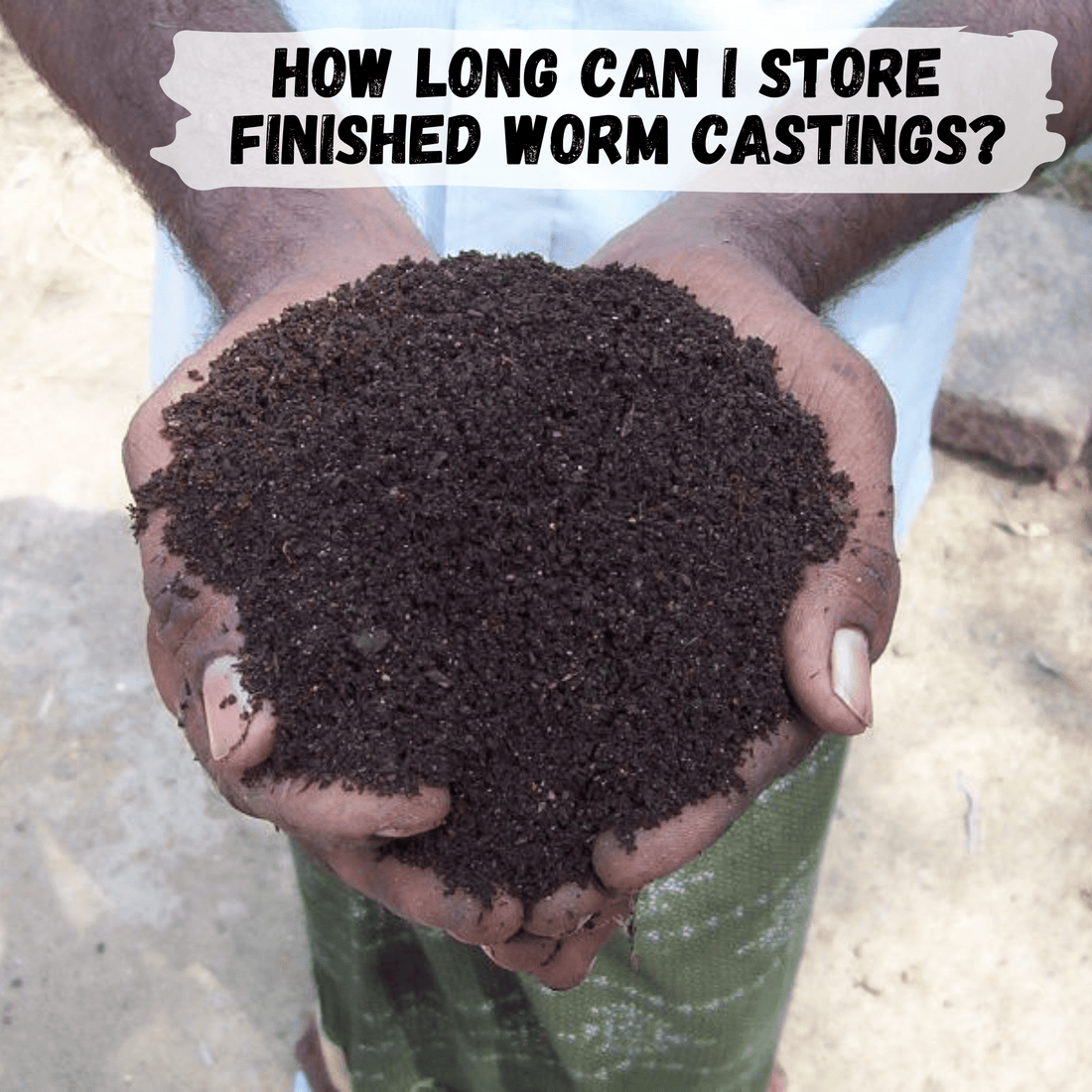
If your worms are being extra productive, you might find yourself with an excess of worm castings. Or, maybe your garden isn’t ready yet and you want to stock up on vermicompost so you have plenty once your plants are in their home. Either way, you’ll need to store the worm castings you get from your worm bin. We want to talk about that in this article.
How to store worm castings
Storing worm castings is easy. Just put them in a non-airtight container with the lid slightly ajar, or with a couple holes drilled into the lid for airflow. Next, lightly spray the castings with water every few days to keep them from drying out. Lastly, keep the vermicompost in a place where it won’t experience extreme temperatures. As long as you get these three factors right, you can store your worm bin castings for a fairly long time.
It’s a good idea to keep a couple worms in with the castings, but it isn’t strictly necessary.
How long can you store worm castings for?
While vermicompost can be stored for as long as three years, it is best to use it as soon as possible, because the bacteria in it slowly consume the organic matter within. So, it has a shelf life of up to three years, but by the end of that time period, you may have vermicompost that’s largely useless. It can still be used to mulch and pot up plants, but it just won’t bring about the spectacular results regular worm castings do.
Other ways to use excess worm castings

If you have an excess of vermicompost and don’t want to store them, you can also consider giving them away to friends and family, or selling them! The latter might be a bit of a hassle, as you will have to figure out how to package, price and deliver them, but if you’re giving them away, it’s as easy as posting about it on social media, and handing a plastic bag full of castings to anyone who shows up asking for some! You could also consider making worm tea and selling or giving it away as liquid fertilizer.
Tips for keeping your worm bin productive
Earthworms aren’t fussy creatures. As long as they have some bedding, food, air flow and moisture, they’ll happily work through the food you give them, and provide you with rich vermicompost. However, there are some best practices for improved yield:
- Turn the top couple inches of the bedding every week, to keep it loose
- Change the worm bedding every 6-8 months
- Keep the worm bin nice and moist – spray it with water every couple days, and try to moisten any food you give them, especially if it’s very dry
- Keep your worms cool in the summer! Temperatures above 84 degrees may cause your worms to start dying off.
- Don’t overfeed your worms, or the bin will start to smell
- Don’t forget to harvest the castings on a regular basis
These were some tips for keeping your worms healthy and productive, and for harvesting and storing the castings they produce. You can also use your worms for fishing, or add them to your garden directly. To get your own worm bin, visit this link.

